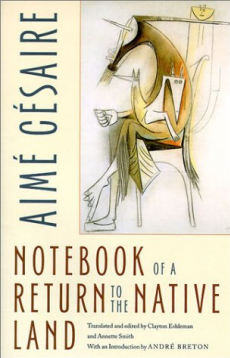
Email: nadege.preston@hotmail.com
Total Article : 82
About Me:Hi I’m Nadege and I study French at the University of Leeds, and I have just completed my third year abroad in Montpellier studying literature and enjoying the sunshine! I love art; painting and being creative, as well as photography and baking. Travelling is my favourite hobby at the moment; experiencing the French language and culture. I hope you enjoy reading some of my articles!

Racism is another key issue according to the extract, and Césaire uses many insults such as 'negro' in order to express the perspective of the oppressed. This represents negritude by making it clear that blacks are not affected by the racist words because it is beautiful and good and legitimate to be ‘negro’. The 'negro' is also described as a cartoon, and as being a comical and ugly ‘negro’ with women behind giggling, watching him. This shows that slavery changes a man physically as he no longer looks like a 'normal' man and the women have prejudices against him, as they make fun of him.
A second example of a polysemy that focuses on a Creole word is in the description of Martinique which creates a reference to the volcanic mountains in the Caribbean. The word is unknown to French society and therefore the meaning of the sentence cannot be understood by many. The phrase has many meanings because the volcanic mountains may suggest the beauty of latent power, for example in relation to 'Negroes' and how they have the power to express themselves. In addition, the reference to the volcanic mountains can refer to revolutionary change; if the volcano erupts, but in context, if the 'negroes' resist colonialism. We can clarify that the use of Creole words mean there are obstacles to the immediate understanding of the poems to the reader.
The 'Notebook of a Return to My Native Land' can be compared with the poems of Léopold Senghor (1906-2001), another theorist of negritude and a friend of Césaire who later became the president of Senegal. The two intellectuals write about the same subject; negritude, but their styles are not similar. Césaire tries to create a language in the book that is related to his experiences using Creole and Metropolitan words, while Senghor uses the language that is at the center of his subject. As a result, he uses Metropolitan French words which are not difficult to understand because he wants French society to easily understand his poetry.
Although it is clear that the Césaire's book may appear hard to read and to understand for the French readers, it should be noted that Africans can relate more to his book because they understand the Creole literature more easily. The words Césaire use strengthens and promotes their culture.
To conclude, I think it is undeniable that Césaire does use an extensive vocabulary in his work, with words used from both Metropolitan and Creole societies. His work consists of many personifications of images using words unknown to those who live in Metropolitan France. However, African readers have more in common with the book because it's about their culture, so they can relate to his work a lot more, and this is the reason why Césaire wrote the book, for the people who are subject to colonialism.
IMAGE URL
http://ecx.images-amazon.com/images/I/51YEHAFZ1EL.jpg

0 Comment:
Be the first one to comment on this article.